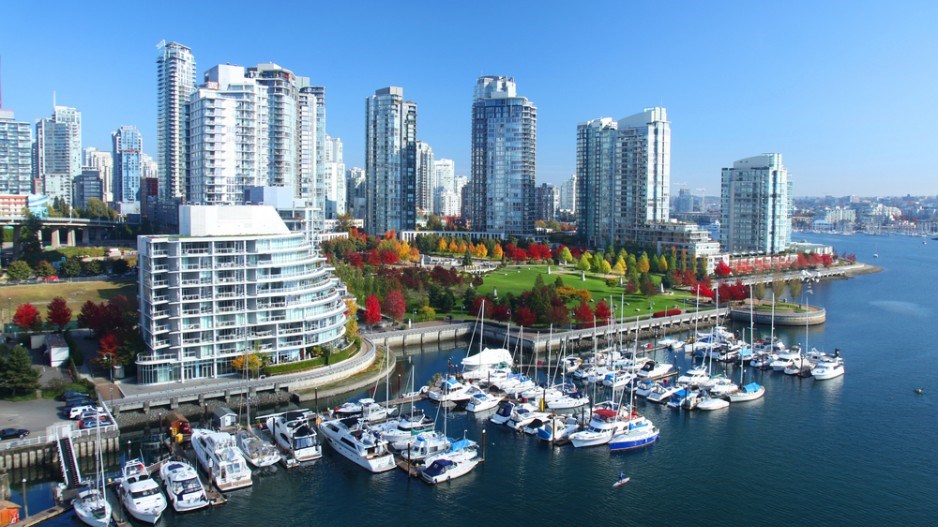Ask Vancouverites where most of the city’s musicians live and they might point to artsy Commercial Drive or another pocket of East Vancouver where rent is (relatively) manageable for an artist.
But based on royalty cheques paid out to musicians by the Society of Composers, Authors and Music Publishers of Canada (SOCAN), it appears neighbourhoods like Yaletown and International Village are where musicians want to be.
The rights group compared its membership data with 2015 Statistics Canada population data to determine Vancouver area codes prefixed with V6B have the highest density of musicians who are paid royalties.
In addition to Yaletown, that includes Gastown and the northeastern tip of the downtown peninsula, east of the musical venues lining the Granville strip.
“We were surprised ourselves,” SOCAN spokesman Andrew Berthoff told Business In Vancouver.
He said the analysis showed that Montreal's Mile End neighbourhood has the most working, royalty-earning songwriters and composers per capita than anywhere else in Canada.
“One tends to assume that Toronto or Vancouver or Montreal, of course, are going to emerge No. 1 but the fact that Montreal took up six out of the top 10 spots was quite interesting,” Berthoff said.
Four Toronto neighbhourhoods, including Little Portugal and Parkdale, also cracked the top 10, while Vancouver was shut out entirely.
But SOCAN’s analysis focused on a very specific category of musician.
Berthoff said “superstar” musicians — the Carly Rae Jepsens or the Chad Kroegers of Nickelback — make up less than 1% of SOCAN’s 135,000 members who collected $310 million in royalties in 2015 (B.C. members accounted for $17 million in royalty payouts).
Instead, the analysis focused on musicians “striving towards middle-class income,” he said.
And it’s also possible not all artists actually reside at the location at which the royalty cheques are being delivered, according to Berthoff.
“Members who are a bit more successful and advanced in their careers often will have managers and their management would be handling their catalogue,” he said.
The composers working in B.C.’s burgeoning film and TV industry also played a part in SOCAN’s analysis.
“You might not know them quite as much as the songwriters and people you hear on the radio but composers are extremely important to the music ecosystem of Canada,” Berthoff said.
“Vancouver’s proximity to Los Angeles definitely helps.”
In February, the province launched a $15-million music fund in response to concerns from Music Canada that B.C. was losing musicians to Ontario, where tax incentives make it cheaper to record music.
The Ontario Music Fund (OMF) was established in 2013 as a three-year program offering $15 million annually in funding to recording artists, music companies and festivals based in that province.
B.C. Premier Christy Clark said at the B.C. music fund’s launch that Victoria would measure the impact it has on the local music industry to determine whether the one-year program will be renewed for subsequent years.
“For the musicians we represent who are the people writing the music…we really would hope [the fund] would do some things with the people who create the music,” Berthoff said, adding he wants the fund to benefit both the recording artists as well as the songwriters.
“They’re the lifeblood of the music industry, really.”




